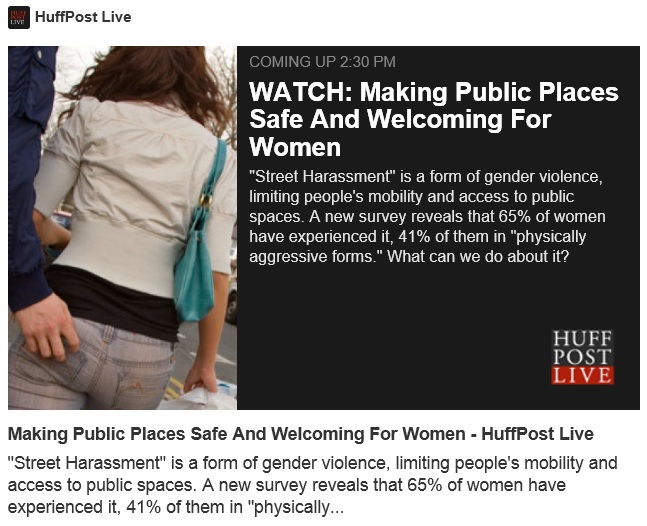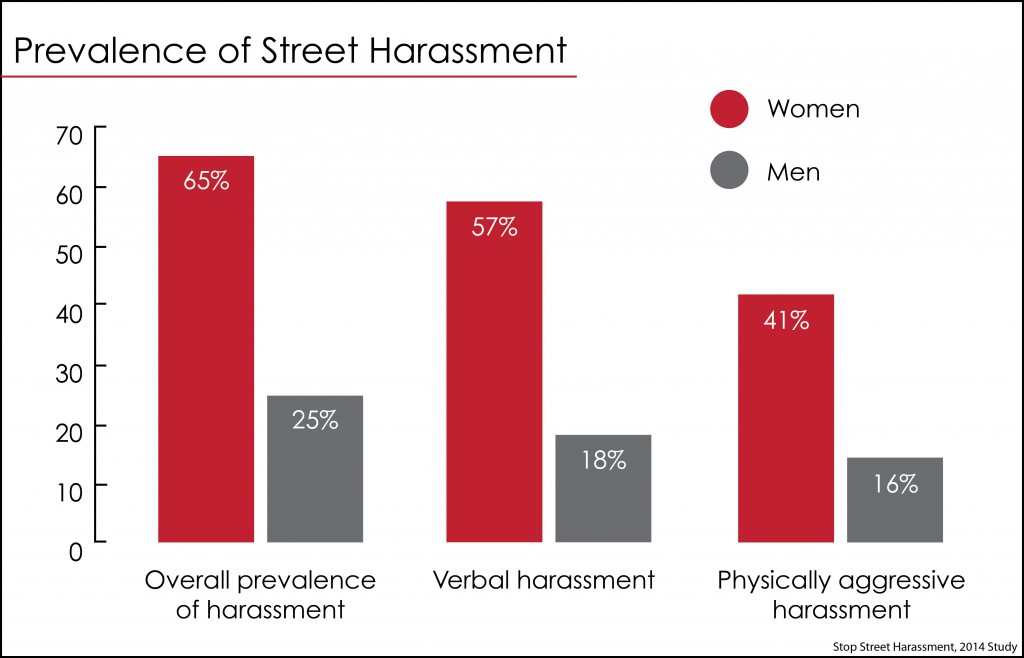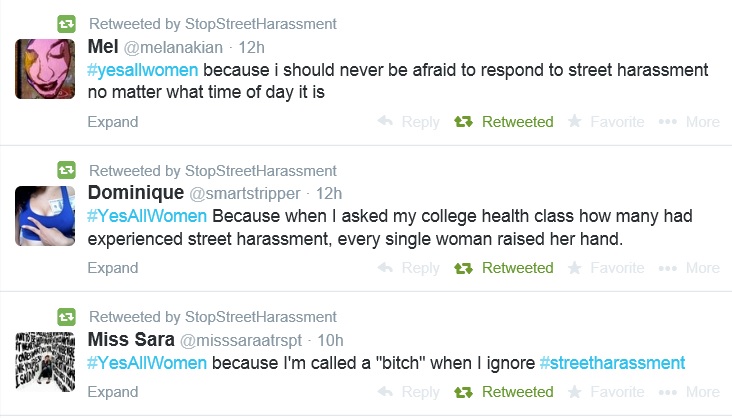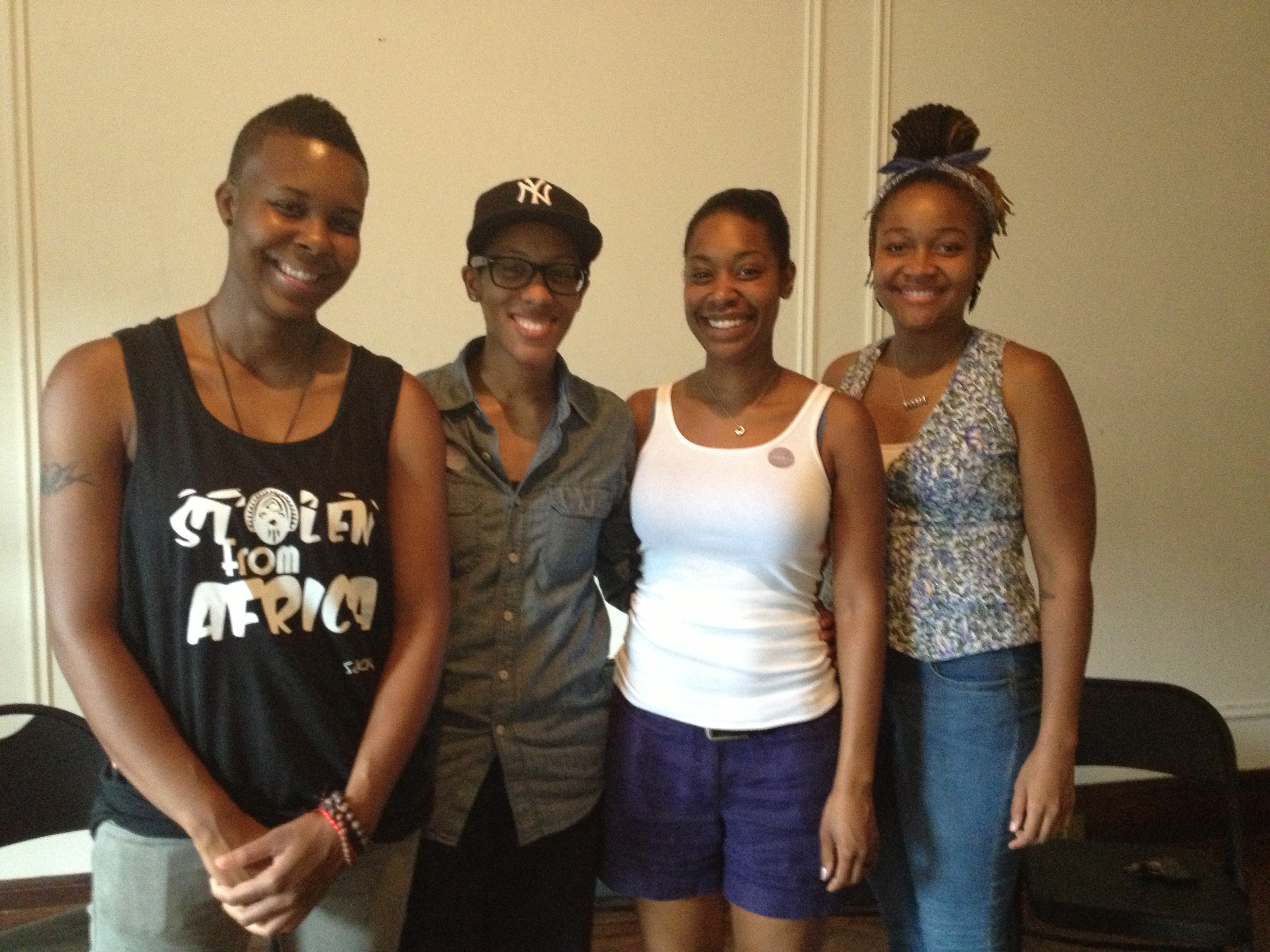FOR IMMEDIATE RELEASE
06/03/14
Contact: Holly Kearl, hkearl@stopstreetharassment.org, (571) 449-7326
Two in Three American Women Experience Sexual Harassment and Assault in Public Spaces
Stop Street Harassment Releases a Groundbreaking National Report
RESTON, VA — From “hey baby” to homophobic slurs, from following to groping, sexual harassment and assault in public spaces by strangers, or “street harassment,” is experienced by more than 107 million women in the United States, according to a study released today by the nonprofit organization Stop Street Harassment (SSH). GfK conducted the 2,000-person nationally representative survey in early 2014.
Half of all women had been harassed by age 17 and most women were somewhat or very concerned that the harassment would escalate into physical violence. Most harassed women also reported changing their lives in some way because of it, including avoiding locations where they had been harassed, no longer going places alone, and even moving neighborhoods or quitting jobs.
Some men also reported experiencing street harassment, especially men who identified as gay, bisexual or transgender. Being the target of a homophobic or transphobic comment (9%) was the most common experience for all harassed men. Half of respondents said their harassment started by age 17, and many men changed their lives because of the harassment they experienced.
The overwhelming majority of both women and men identified one man or a group of men as the perpetrator of harassment.
“It is shameful that millions of people are harassed by men simply for being in public spaces while they travel to and from school, work, stores, and events,” said Holly Kearl, executive director of Stop Street Harassment and author of two books on the subject. “If we want to see the United States achieve equality for all, it is imperative that communities — and we as a nation — address this pervasive human rights violation.”
While verbal comments were the most common form of harassment, an alarmingly number of women had faced more severe forms, too. Among all female respondents, 23% had been purposely sexually touched, 20% had been followed, and 9% had been forced to do something sexual.
“Street harassment is a pervasive form of sexual violence that has a profound impact for those who are harassed, their friends and families, and their community. Failing to address this systemic problem continues to perpetuate the belief that this behavior is acceptable,” said Michele Black, PhD, a SSH report advisor and the lead author of the U.S. Centers for Disease Controls (CDC) National Intimate Partner and Sexual Violence Survey 2010 Summary Report. “It is important that bystanders step forward and show that street harassment will not be tolerated,” the recently retired CDC epidemiologist said.
The report also i ncludes stories from 10 focus groups conducted across the nation as well as recommendations for what we all can do to address this problem. There are separate recommendations directed to educators, community leaders, transit authorities, law enforcement, business owners, and individuals, complete with examples of promising and replicable initiatives.
ncludes stories from 10 focus groups conducted across the nation as well as recommendations for what we all can do to address this problem. There are separate recommendations directed to educators, community leaders, transit authorities, law enforcement, business owners, and individuals, complete with examples of promising and replicable initiatives.
The full report and a two-page executive summary are available for download on the SSH website.
HuffPost Live will air a segment on the report at 2:30 p.m. EDT today.



